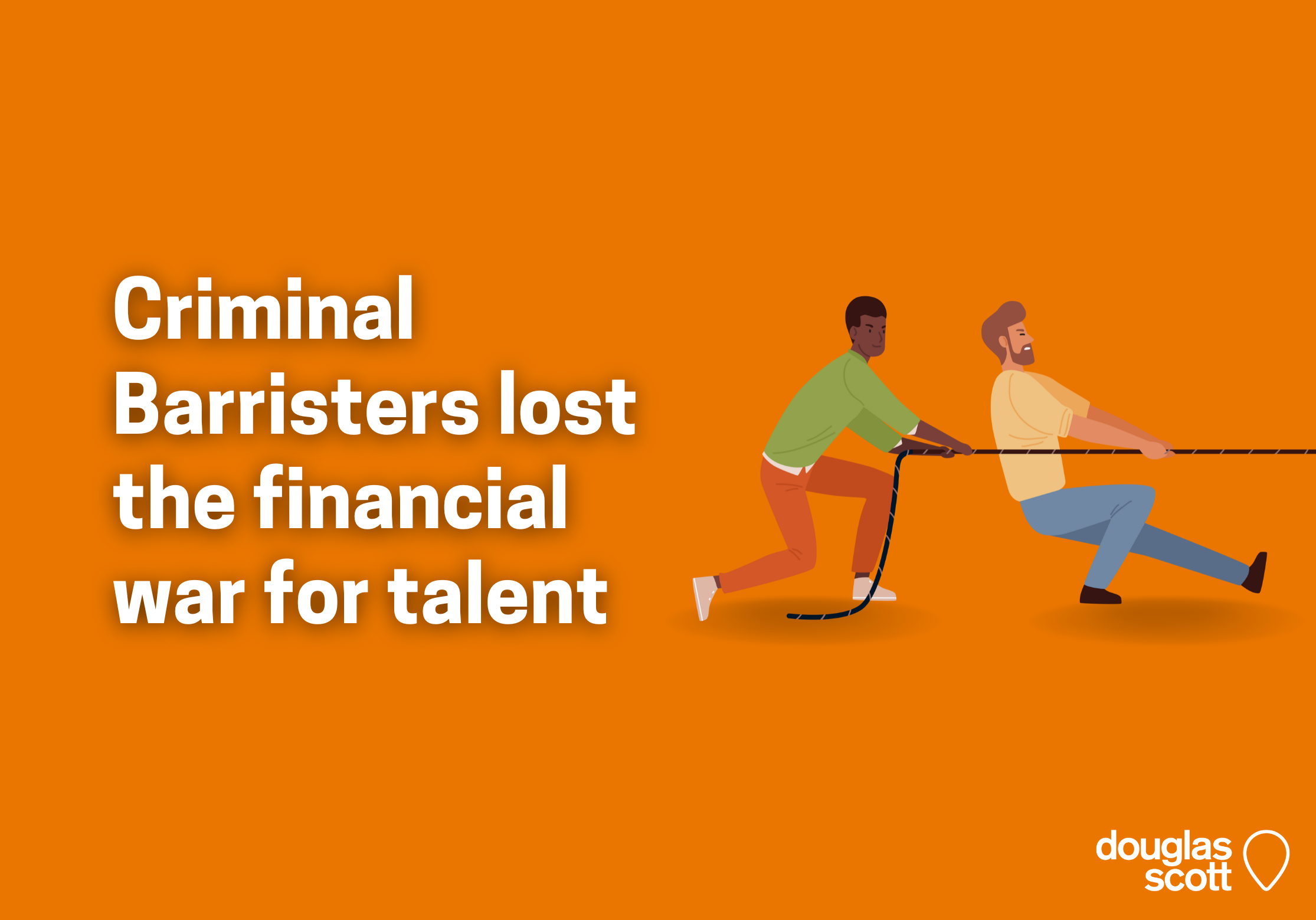Criminal Barristers Lost The Financial War For Talent
Posted in Latest News on 8 Sep 2022

A lot of workers are taking industrial action in the UK, from rail staff to rubbish collectors. However, one of the most unusual pay protests comes this week when thousands of criminal barristers go on indefinite strike to push government to increase their legal fees.
The real incomes of barristers, who defend those on criminal charges, have fallen steadily over the last two decades to an average of £47,000 in 2021, a figure depressed during the pandemic by not being able to appear in court. That is less than some leading law firms offer their new trainees straight out of university.
Consideration must be given to the vital role criminal barristers undertake in society by defending people who are in dire trouble, with their pay being very modest compared with many commercial lawyers.
The minimum pay for trainees at London chambers is a little over £19,000 per year whereas chambers specialising in tax law are paid as much as five times that amount. Meanwhile, law graduates joining one of the five “magic circle” firms such as Clifford Chance are paid about £50,000 as first-year trainees, with their future earnings potential rising significantly.
The city’s Legal Aid Society has complained of losing many attorneys and paralegals due to comparatively low pay and the pay decisions facing graduates are more clearer cut than a generation ago. It used to matter less whether a graduate job tapped into a global market, in either the private or public sectors, or whether the position was transactional or socially beneficial. But the plight of British criminal barristers is a special concern.
Sir Christopher Bellamy did not exaggerate when he called legal aid “essential to maintaining a modern, peaceful and democratic society” in his 2021 review where he stated "if it is irrational to work for anyone but the rich, we are all in trouble."
Away from the criminal courts, the war for legal talent remains intense which raises the question, 'What would happen if most of the available talent is sucked into commercial transactions, leaving little for anything else?'
Latest insight
-
Criminal solicitors – Are they the unhappiest legal sector?
18 Jun 2025 -
What motivates Employment solicitors to leave their roles?
03 Jun 2025 -
How happy are Residential Conveyancers?
29 May 2025 -
Is the Private Client market a static one?
28 May 2025 -
What can law firms do to protect mental health?
20 May 2025